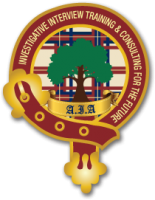This highly interactive block of instruction invites investigative professionals—analysts, auditors, evaluators, fraud examiners, investigators, and inspectors—to engage in structured, facilitated dialogue about their interviewing strengths, challenges, and growth areas. Unlike traditional lecture formats, this forum is built on peer exchange, instructor-guided reflection, and science-based interviewing insights that help participants better understand their own habits, preferences, and blind spots.
Participants will explore the types of interviews they gravitate toward—and those they tend to avoid—while examining the underlying cognitive, emotional, and strategic factors that shape those preferences. The session also introduces techniques for improving underdeveloped skills, reframing perceived weaknesses, and aligning personal style with best practices in investigative interviewing.
The format is flexible and adaptive, allowing for instructor-initiated prompts and participant-driven topics. Whether discussing rapport-building, evidence presentation, or managing resistance, attendees will leave with a clearer sense of their interviewing identity and a roadmap for professional development.
Science-Based Interviewing Integration
This forum draws on principles from contemporary interviewing science, including:
• Cognitive Load Awareness: Understanding how mental bandwidth affects interviewer performance.
• Strategic Use of Evidence (SUE): Reflecting on how and when participants deploy known facts.
• Time Responsibility Continuum: Exploring how interviewers respond to questions and manage timing.
• Self-Assessment and Metacognition: Encouraging participants to evaluate their own interviewing decisions and biases.
Course Objectives
By the end of this block, participants will be able to:
• Identify personal strengths and weaknesses in investigative interviewing.
• Analyze the types of interviews they prefer or avoid, and understand the reasons behind those preferences.
• Reflect on how their interviewing style aligns with science-based principles and ethical standards.
• Develop strategies for improving specific interviewing skills through targeted practice and feedback.
• Engage in peer dialogue to exchange techniques, insights, and support for professional growth.
• Apply self-awareness to future interviews, enhancing effectiveness and adaptability.

